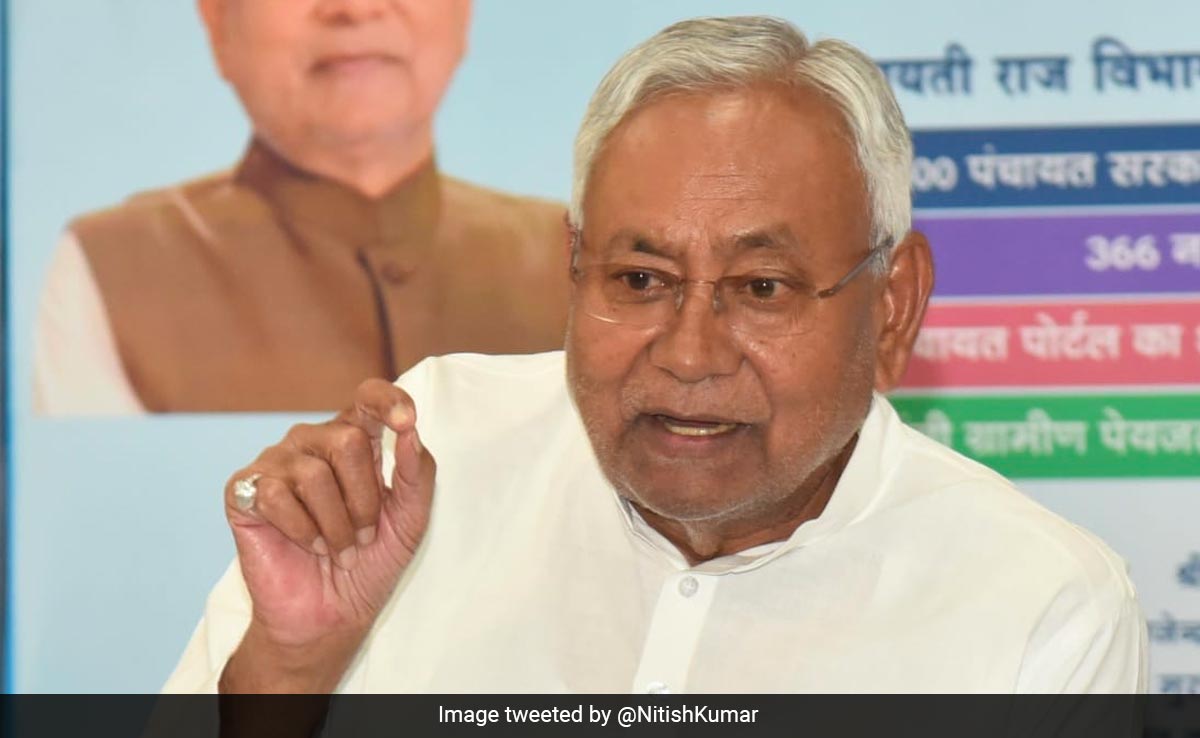Nitish Kumar government released the findings of caste survey in October 2023
The Supreme Court on Tuesday asked the Bihar government to put in the public domain the break-up of the caste survey data to enable those aggrieved to challenge the findings.
A bench of Justices Sanjiv Khanna and Dipankar Datta refused to grant any interim relief to the petitioners who have challenged the caste survey and the Patna High Court order upholding the Bihar government's decision to conduct such an exercise.
"There is no question of interim relief as they (the government) have a high court order in their favour. Now that the data has been put in public domain, there are two-three aspects which remain. First is the legal issue-correctness of the high court judgement and legality of such an exercise," the bench said.
Senior advocate Raju Ramachandaran, appearing for the petitioners, said since the survey data is out, the authorities have started implementing it in the interim and raised the reservation for SCs, STs, Other Backward Classes, Extremely Backward Classes, and Economically Weaker Sections (EWS) to a total of 75 per cent from the existing 50 per cent.
The bench said this issue needs to be heard at length.
"As far as increasing the reservation is concerned, you have to challenge it before the high court," the bench told Ramachandaran, who said it has already been contested before the high court.
Ramachandaran said the issue is important, and since the state government is acting upon the data, the matter be listed next week so that the petitioners can argue for interim relief.
"What interim relief? They (the Bihar government) have a high court judgement in their favour," the bench said.
Senior advocate Shyam Divan, appearing for the Bihar government, said the data, including the break-up, has been put in the public domain and anyone can see it on the designated website.
Justice Khanna said, "What I am more worried about is the availability of break-up of data. To what extent the government can withhold the data. You see, the entire break-up of data should be in the public domain so that anyone can challenge the inference drawn from it. Unless it is in the public domain, they can't challenge it."
The BJP, the main opposition party in Bihar, has accused the Nitish Kumar government of irregularities in conducting the caste survey and called the data collected "fake".
The bench then asked Divan to file a report on the caste survey and posted the matter for further hearing on February 5.
On October 6, 2023, the top court had questioned the Bihar government as to why it published its caste survey data. It had, however, refused to restrain the state government from making public further data, and said it may examine if the state has the power to conduct such an exercise.
It had issued a formal notice on a batch of pleas challenging the August 1, 2023 order of the Patna High Court that gave the go-ahead for the caste survey in Bihar.
It rejected the petitioners' contention that the state government has already published some data preempting a stay. They had sought a complete stay on further publication of data.
On October 2, 2023, the Nitish Kumar government had released the findings of the caste survey, a move its detractors claimed was made keeping in mind the 2024 Parliamentary elections.
The data revealed that the OBCs and EBCs constituted a whopping 63 per cent of the state's population.
According to the data released, the state's total population stood at a little over 13.07 crore, out of which the Extremely Backward Classes (36 per cent) were the largest social segment followed by the Other Backward Classes at 27.13 per cent.
The survey also said the Yadavs, the OBC group to which Deputy Chief Minister Tejashwi Yadav belongs, were the largest caste in terms of population, accounting for 14.27 per cent of the total.
Dalits accounted for 19.65 per cent of the total population in the state, which is also home to nearly 22 lakh (1.68 per cent) people belonging to the Scheduled Tribes.
On August 7, 2023, the top court had refused to stay the high court's order giving the go-ahead for the caste survey.
Besides a plea by NGO 'Ek Soch Ek Paryas', several other petitions have been filed, including one by Nalanda-resident Akhilesh Kumar, who has contended that the notification issued by the state government for the exercise is against the constitutional mandate.
Kumar's petition says, according to the constitutional mandate, only the Union government is empowered to conduct a census.
The high court had said in its 101-page verdict, "We find the action of the state to be perfectly valid, initiated with due competence with the legitimate aim of providing development with justice."
(Except for the headline, this story has not been edited by NDTV staff and is published from a syndicated feed.)






Leave a Reply